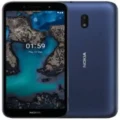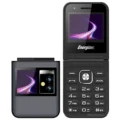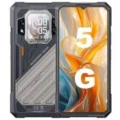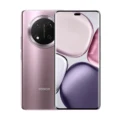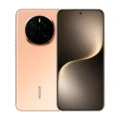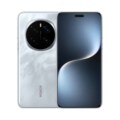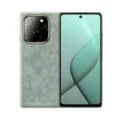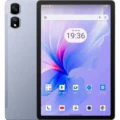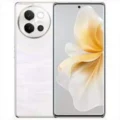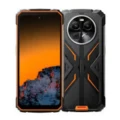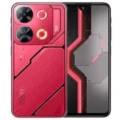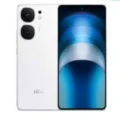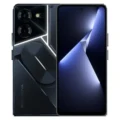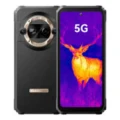Nokia 105 4G (2023)
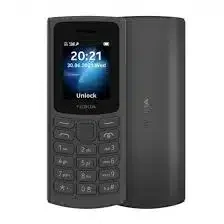

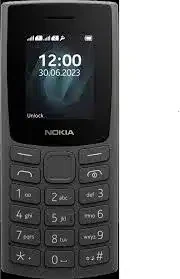
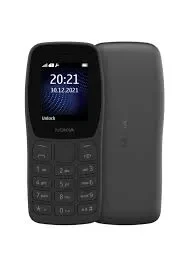
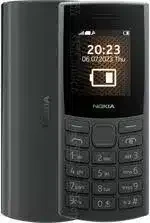
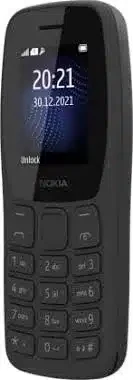
-
:
-
: 1.8" 120x160 pixels
-
: 1450mAh
-
: NO
Introducing the Nokia 105 4G (2023), your go-to device for a simple and reliable mobile experience. Designed with ease of use in mind, this affordable phone seamlessly blends modern connectivity with Nokia’s trusted durability.
Stay connected effortlessly with the power of 4G, ensuring faster data speeds and smooth internet browsing. Whether you’re making calls, sending texts, or accessing basic online features, the Nokia 105 4G guarantees a hassle-free connection. Its user-friendly interface and comfortable design cater to users of all ages, making communication a breeze.
The phone boasts a clear and vibrant 1.8-inch display, providing a crisp viewing experience for your essential tasks. Its compact size makes it easy to handle and conveniently slip into your pocket or purse. Built to last, the Nokia 105 4G can withstand the rigors of daily use, ensuring longevity and dependability.
With an extended battery life, you can trust the Nokia 105 4G to keep you connected throughout the day without frequent recharging. Its robust build and simplified functionality make it an excellent choice for those who value reliability and efficiency in their communication devices.
Embrace the heritage of Nokia’s legendary durability with the added benefits of modern connectivity. Whether you need a dependable backup phone for work or simply prefer a straightforward device, the Nokia 105 4G (2023) caters to your communication needs. Elevate your mobile experience with Nokia’s commitment to quality and innovation in a device that prioritizes readability and simplicity.
Specs
Network
| 2G Network GSM 850 / 900 / 1800 / 1900 - SIM 1 & SIM 2 (dual-SIM) CDMA 800 / 1900 |
GSM 900 / 1800 - SIM 1 & SIM 2 (dual-SIM model only) |
| 3G Network |
HSDPA 850 / 900 / 1700(AWS) / 1900 / 2100 HSDPA 850 / 900 / 2100 |
| 4G Network |
LTE |
| Speed |
HSPA, LTE |
LAUNCH
| Announced | May, 2025 |
| Status |
Available. Released 2023, June |
BODY
| Dimensions | 121.5 x 50 x 14.4 mm (4.78 x 1.97 x 0.57 in) |
| Weight | 93 g (3.28 oz) |
| SIMs SIM (Subscriber Identity Module) is a small card that contains mobile network subscriber's account information. This allows the phone using the card to attach to a mobile network. The SIM card is most commonly associated with GSM and UMTS mobile networks. Moving a SIM card from one phone to another allows a subscriber to switch mobile phones without having to contact their mobile network carrier. SIM cards can also be used by a phone to store limited amounts of data, such as phone numbers and text messages. |
Single SIM (Nano-SIM) or Dual SIM (Nano-SIM, dual stand-by) Flashlight Splash resistant |
Display
| Display Type Display Technology => A number of display technologies and types used in mobile phones => TFT (Thin Film Transistor), IPS (In-Place Switching), OLED (Organic Light Emitting Diode), AMOLED (Active-Matrix Organic Light-Emitting Diode), Super AMOLED (an even advanced version of AMOLED), Resistive Touchscreen (Resistive touchscreens contain two layer of conductive material with a very small gap between them which acts as a resistance), Capacitive Touchsceen (Capacitive touchscreen technology consists of a layer of glass coated with a transparent conductor) | IPS LCD |
| Size | 1.8 inches, 10.0 cm2 (~16.5% screen-to-body ratio) |
| Resolution | 120 x 160 pixels, 4:3 ratio (~111 ppi density) |
PLATFORM
MEMORY
| Card Slot Memory Card Slot is a special slot for inserting a memory card. Memory cards allow you to expand the phone's built-in memory, A memory card (sometimes called a flash memory card or a storage card) is a small storage medium used to store data such as text, pictures, audio, and video, for use on small, portable or remote computing devices such as mobile phones, mp3 players, digital cameras. | microSDHC |
| Internal | Unspecified |
MAIN CAMERA
| Cameras Specs Today’s smartphones come equipped with a very comprehensive set of camera related specifications. Our smartphone, for many of us, has become our primary camera due to it being the one we always have with us. |
No |
SELFIE CAMERA
| Cameras Specs Today’s smartphones come equipped with a very comprehensive set of camera related specifications. Our smartphone, for many of us, has become our primary camera due to it being the one we always have with us. |
No |
SOUND
| Loudspeaker | Yes |
| 3.5mm jack | Yes |
COMMS
| WLAN |
No |
| Positioning |
No |
| Bluetooth Bluetooth is a wireless communications technology for exchanging data between mobile phones, headsets, computers and other network devices over short distances without wires, Bluetooth technology was primarily designed to support simple wireless networking of personal consumer devices. | 5.0, A2DP |
| Infrared Infrared connectivity is an old wireless technology used to connect two electronic devices. It uses a beam of infrared light to transmit information and so requires direct line of sight and operates only at close range. | |
| USB | microUSB 2.0 |
| NFC NFC (Near field communication) is a set of standards for smartphones and similar devices to establish peer-to-peer radio communications with each other by touching them together or bringing them into proximity, usually no more than a few inches. | |
| Radio |
Features
BATTERY
| Battery Type Battery Type => Cell phones run on various kinds of batteries depending on the manufacturer, phone size or shape and features. There are basically four types of cell phone batteries => Lithium Polymer, Lithium Ion, Nickel Metal Hydride and Nickel Cadmium. | Li-Ion (Lithium Ion) |
| Capacity Battery Capacity is a measure (typically in Amp-hr) of the charge stored by the battery, and is determined by the mass of active material contained in the battery. The battery capacity represents the maximum amount of energy that can be extracted from the battery under certain conditions. | 1450 mAh |
| Placement | removable |
MISC
| Colors |
Charcoal, Ocean Blue |
| Price |
About 40 EUR |
TESTS
Reviews
Disclaimer Note
We strive to maintain accurate and up-to-date content on our website for general information purposes only. Please refrain from using the material for business, legal, or any other decisions.


